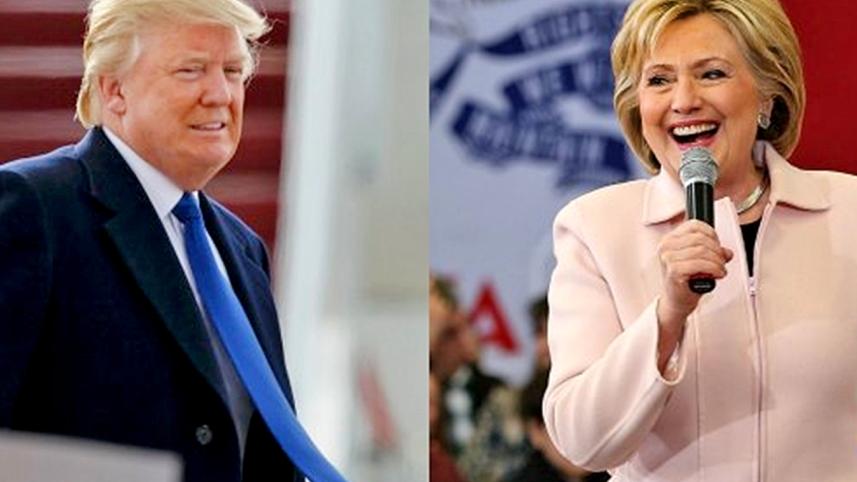Trump and Hillary prevail – For now

The good people of South Carolina and Nevada have spoken, and now we have a better idea of where the Republican and Democratic race for US president is headed.
Donald Trump, the provocative real-estate tycoon who strikes fear in the Republican Party establishment, has romped to victory in the South Carolina Republican primary with nearly a third of the votes, while former US Secretary of State Hillary Clinton has eked out a narrow victory over Vermont Sen. Bernie Sanders in the Nevada Democratic primary.
The results provide a respite for Clinton, who has been smarting from a surprisingly powerful challenge from Sanders. The iconoclastic democratic socialist senator's charge that the present system serves the interests of the privileged has deeply resonated with many Democratic voters.
The Republican primary battle, however, remains a confusing muddle. Trump has completely thrown conventional political calculations out the window. Besides, there are still too many candidates, so the electoral math gets fuzzy. Take South Carolina, where Trump was the comfortable winner with only a plurality of the vote, around 32 percent. His nearest contestants, Florida Senator Marco Rubio and Texas Senator Ted Cruz, barely won more than 20 percent. The rest of the vote was divided by also-ran candidates.
Trump continues to confound political analysts and rile Republican elders as he goes about his merry way. His recent antics include an argument with Pope Francis (admittedly triggered by the Pope's remarks), support for a false historical story of a US general dipping bullets in pig's blood and shooting Muslims, and criticism of former President George W. Bush's Iraq war and his role during the 9-11 attacks.
Trump's attacks on the former president stunned political analysts. Surely, Trump had crossed a line. Well, predictions of Trump's political demise have always been risky, and so it proved again. Trump emerged essentially unscathed.
The same cannot be said of Florida Governor Jeb Bush. Last year, he started with a $100 million war chest, and overwhelming Republican establishment and donor support. Yet, even a last-ditch effort by former President George W. Bush failed to revive his campaign. He made a tearful exit.
The news isn't so good for firebrand conservative Ted Cruz either. The Texas senator has attempted to ride the wave of anti-establishment fury and expected to do well in South Carolina. However, it turns out that Trump has done better, leaving a disquieting question for Cruz: If he can't win here, where can he win?
This must be a matter of some solace for Republican Party leaders, as they have watched in horror while Trump and Cruz have been making waves. Party leaders consider either candidate a disaster for a general election, but until now, they had failed to unite in support of a candidate.
This may change with Jeb Bush's exit, and Florida Senator Marco Rubio is likely to be the beneficiary. His second-place finish is a morale booster, and donors are likely to flock to him. Nevertheless, he did finish a poor second to Trump, and he has yet to win in any state.
On the Democratic side, supporters of Hillary Clinton are heaving a huge sigh of relief. Sanders' crushing victory in New Hampshire doesn't appear to have changed the general dynamics of the Democratic contest, and Clinton's strong support among minorities, particularly African-Americans, should stand her in good stead in the coming primaries.
Things will get pretty hectic on March 1, with Republican contests in 12 states and Democratic contests in 10 states. This includes many Southern states with large African-American populations, and Clinton can expect to benefit.
Having said that, there is no question that Senator Bernie Sanders has changed the political conversation in the Democratic party. Sanders never tires of pointing out that the system is gamed in favour of the rich.
Nicholas Kristof, a columnist with The New York Times, agrees.
"America's political system is rigged. The deck is stacked against ordinary people," he writes. "That's the frustration that has fuelled, in very different ways, the anti-establishment campaigns of Donald Trump, Ted Cruz and Bernie Sanders in particular."
Kristof offers two examples.
"One glimpse of the structural unfairness in America is this: A dumb rich kid is now more likely to graduate from college than a smart poor kid, according to Robert Putnam of Harvard University."
"Another: The 20 wealthiest Americans . . . are worth more than the poorer half of the American population, according to a recent report from the Institute for Policy Studies."
While many dismiss Sanders' policy prescriptions as too radical for US politics, sometimes ideas that appear radical can catch on. Social Security, a mainstay of retiree security in the US today, was first dismissed out of hand when suggested by socialist activist Norman Thomas.
"It's fair for Democrats to press Sanders on how, exactly, he intends to achieve his 'political revolution,'" writes Yoav Fromer in The Washington Post. "What is unfair is to dismiss his policies outright because they seem too far from the mainstream. . ..Sanders' push to fix a rigged economy and curtail campaign cash may shape the future Democratic agenda, regardless of whether he gets the nomination . . . There is little doubt that Clinton's pragmatic sensibility is invaluable for getting things done. But the revolutionary tradition in which Sanders stands can make sure they get done for the right reasons."
The writer is a reporter and an editor of India-West weekly newspaper, based in California, USA.

 For all latest news, follow The Daily Star's Google News channel.
For all latest news, follow The Daily Star's Google News channel.